VCU Residential Life and Housing's mission is to provide safe and well-maintained facilities. Maintenance and cleaning are essential to this mission and each of you can help us keep our facilities clean and free from mold. Mold is a fungus that can be found indoors and outdoors in all climates at all times of the year. There are many different types of molds, and mold spores can be found even in the cleanest buildings and homes. Mold can become a concern when it is allowed to grow and spread indoors. Mold is typically dark in color and grows best in a warm, moist, humid environment. Mold spreads and reproduces by releasing tiny spores that float through the air until landing in other locations. When environmental conditions are dry and cool, molds produce spores that do not actively grow. When there is a lot of moisture or high humidity and temperatures above 65° F, the mold spores become active and will start to grow rapidly. Mold may begin growing indoors when mold spores land on surfaces that are wet. Find out more about mold from the EPA Mold Frequently Asked Questions page.
Mold Prevention FAQ
There are four critical requirements for mold growth – available mold spores, available mold food, appropriate temperatures, and considerable moisture/humidity. The removal of any one of these items will prohibit mold growth. However, removing excess moisture/humidity is most effective.
Almost any organic substance can provide sufficient nutrients to support mold growth. Even the oil from your skin that is left when you touch an otherwise unsuitable surface, like stainless steel or a concrete block wall, or the soap residue left from cleaning will provide sufficient nutrients to support the growth of some molds. Many of the most common materials found in rooms such as wood, paper, and organic fibers are among the most preferred mold nutrients. Some residence halls also tend to harbor high humidity during the spring, summer, and early fall months, when the air-conditioning is turned on.
There is no way to eliminate all mold and mold spores indoors. However, mold spores will not grow if the conditions that support their growth are absent. Mold needs both a food source and moist conditions. Routine cleaning of surfaces and reducing the presence of moisture and damp materials are highly effective prevention measures. Following the guidelines below can help prevent mold and mildew growth:
- Report any conditions that contribute to mold growth, such as water leaks, condensation, water infiltration or flooding, online at fss.vcu.edu (VCU Facilities Management’s customer service portal) or submit a work order at My Community for GRC. If the water is actively leaking, dripping quickly, running or flooding, immediately call the 24/7 Facilities Management Operations Center at (804) 828-9444 or (804) - 828-2226 to report the issue.
- Always set the fan mode switch of your air conditioner thermostat to the AUTO setting, never the ON setting. Why? When set to the ON position the blower fan runs continuously and pulls humid, outside air back into your room. This humidity in your room can increase mold growth and can even condense into drips or puddles on chilled water pipes or cool walls or objects. Leave the air conditioner thermostat fan mode switch is set to the AUTO position to control humidity and temperature.
- Avoid opening windows and introducing humid air into your room. That outside humid air mixes with your cold air-conditioned air and creates the perfect environment for mold to grow.
- Remember to close the shower curtain after showering to allow the curtain to dry. Report any apartment/suite bathroom exhaust fans that aren’t working online at fss.vcu.edu or submit a work order at My Community for GRC. (Note that the high-rise buildings (Rhoads, Brandt) have exhaust vents that don’t make any noise when they are removing the steam from the bathroom.) Keep the door to the bathroom open and the fan running for at least 30 minutes after your shower so moisture can dissipate.
- Regular cleaning is important to remove naturally occurring mold spores. You should wipe down hard surfaces in your room/apartment/suite (i.e., counters, shelves, toilets, mirrors, showers and tile floors) once a week using a common household cleaner, or a mixture of water and white vinegar for a “greener” option.
- Vacuum carpets and clean floors often and wash bed linens and window treatments regularly.
- Make sure you keep the air conditioner at a reasonable temperature (68 - 72 degrees). A room that is too warm and humid will grow mold as if in a rainforest; a room that is too cold will create moisture in the form of condensation, which mold also uses to grow.
- Review ideal thermostat settings for each hall below:
- Ackell:
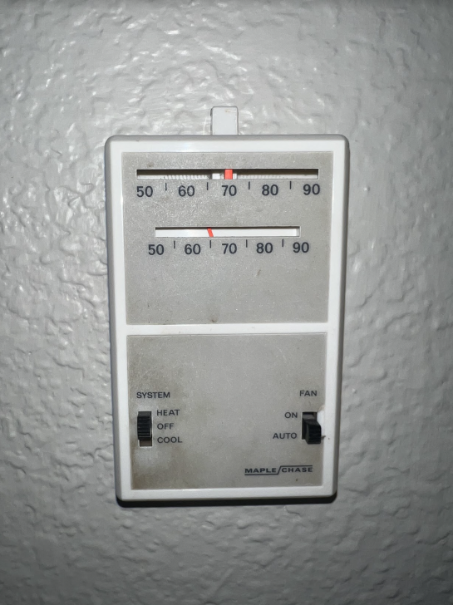
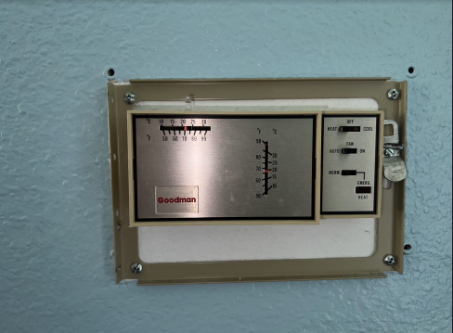
- Brandt:
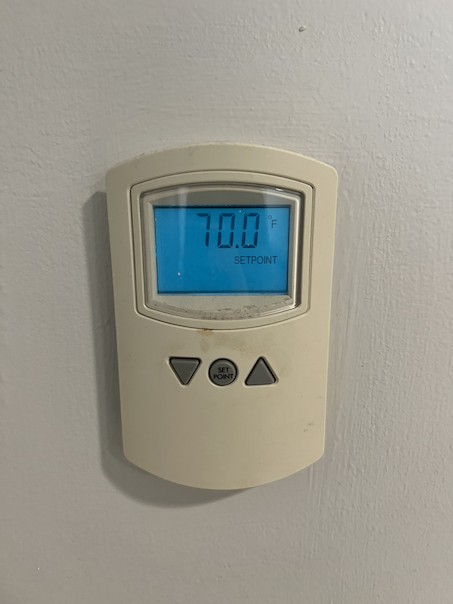
- Cary & Belvidere:
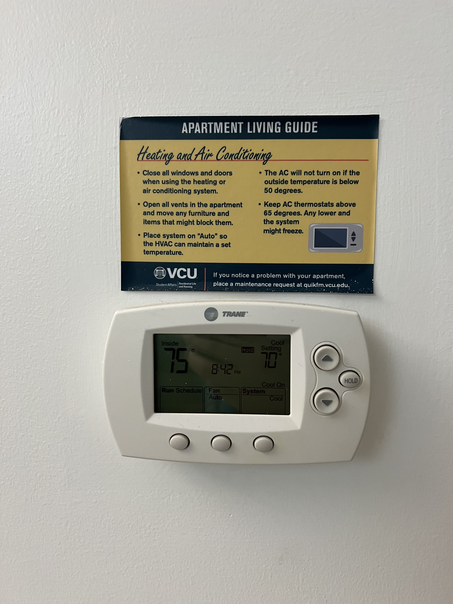
- Grace & Broad:
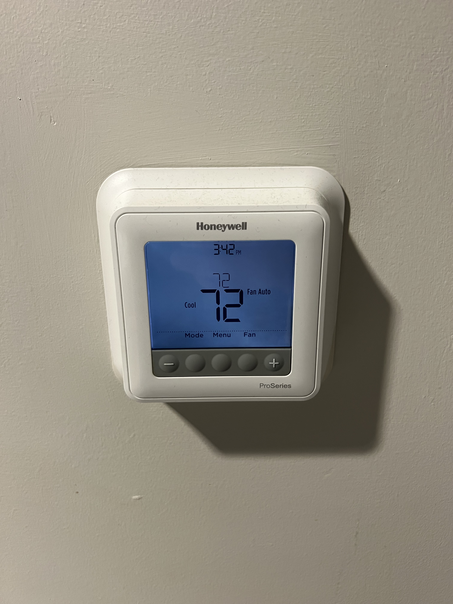
- Honors:
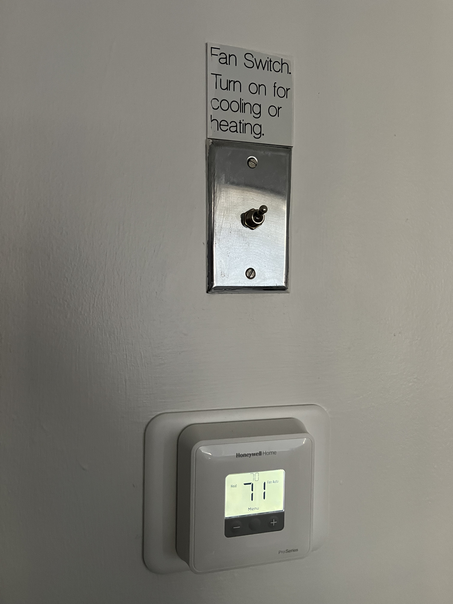
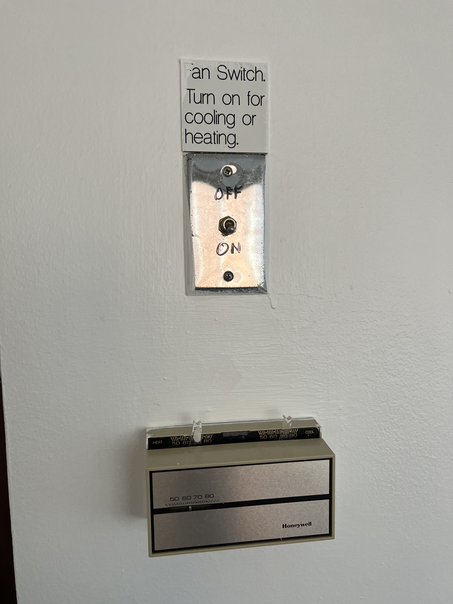
- Rhoads:
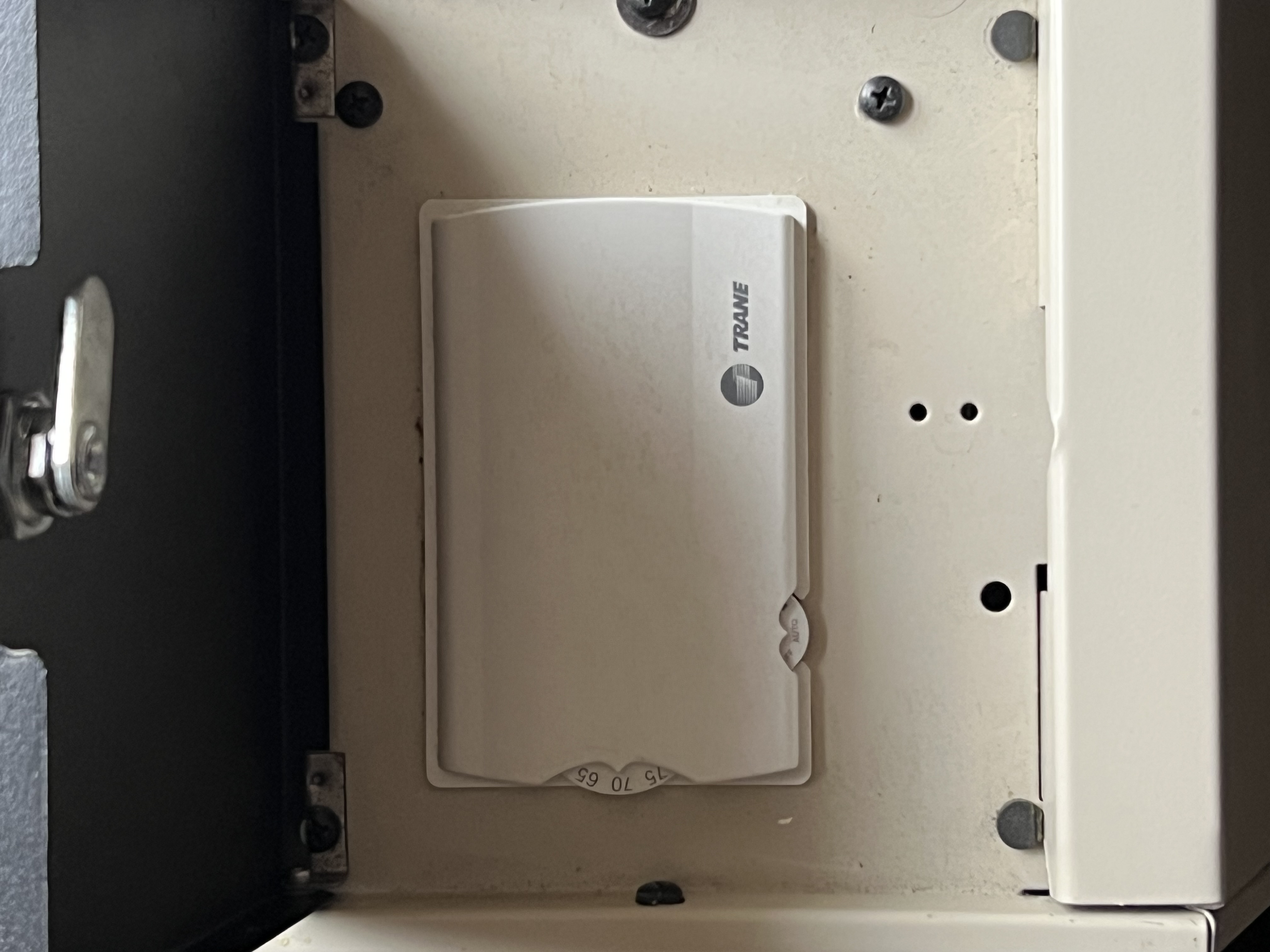
- West Grace North & West Grace South:
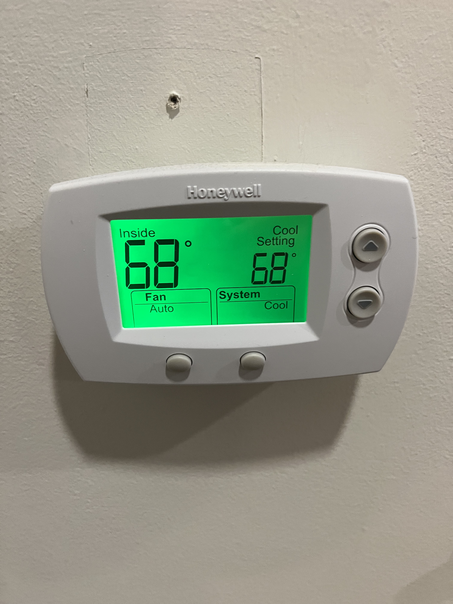
- Ackell:
When molds grow on surfaces, they appear as a discolored patch or spotting, such as black stains on your walls or ceiling, or gray or blue stains on your floor.
Common household molds also have a "musty" or "earthy" smell, somewhat like the forest floor deep in the woods. Common allergic reactions to mold include sneezing, sore eyes, and a runny nose or nasal congestion. Note that not all allergic reactions are related to mold, and can also be related to seasonal allergies or dust. Your symptoms could also be caused by a run-of-the-mill cold. It is best to visit Student Health if you are feeling unwell so that your symptoms can be more accurately diagnosed.
Please submit a work order at fss.vcu.edu or submit a work order at My Community for GRC Residents to have the issue investigated. Once you have submitted a work order, VCU or GRC Facilities Management will inspect and remedy (e.g., clean) the issue. If the issues or symptoms of the occupant persist, Safety and Risk Management or GRC Management staff will conduct an investigation of the situation further and determine the next steps, if any.
Mold can spread quickly under the right conditions but if you remove the visible mold and moisture mold can be contained. Molds digest or "eat" the material they are growing on. Some places where mold likes to grow inside include carpet, paper, clothes, leather, drywall, wood, insulation, and food. Mold can heavily damage your personal property if it is not reported and removed promptly.
Mold can cause sneezing, red/dry eyes, a runny nose, and nasal or respiratory congestion. The symptoms are very similar to allergies and common colds and can easily be confused. It is best to visit Student Health if you are feeling unwell so that your symptoms can be more accurately diagnosed. Some people are more sensitive to mold than others. For these people, exposure to molds can cause multiple symptoms including fever and shortness of breath. Individuals with immune suppression may be at increased risk for infection from mold. If you are feeling ill, you should call University Student Health Services at (804) 828-8828 or (804) 828-9220.
Portable air purifiers equipped with HEPA filtration and dehumidifiers rated for the square footage of the space can be used to improve air quality and reduce mold spores and overall allergens such as pollen and dust. Occupants are responsible for operating and changing out the filters according to the manufacturer’s recommendations. Be sure you are not purchasing an ozone generator, ozone is not safe indoors.
If you would like to purchase a portable air cleaner for your residence, please refer to the Guide to Air Cleaners in the Home provided by the EPA. University Housing will install dehumidifiers in student rooms if excessive humidity becomes an issue, and additional dehumidification is required.